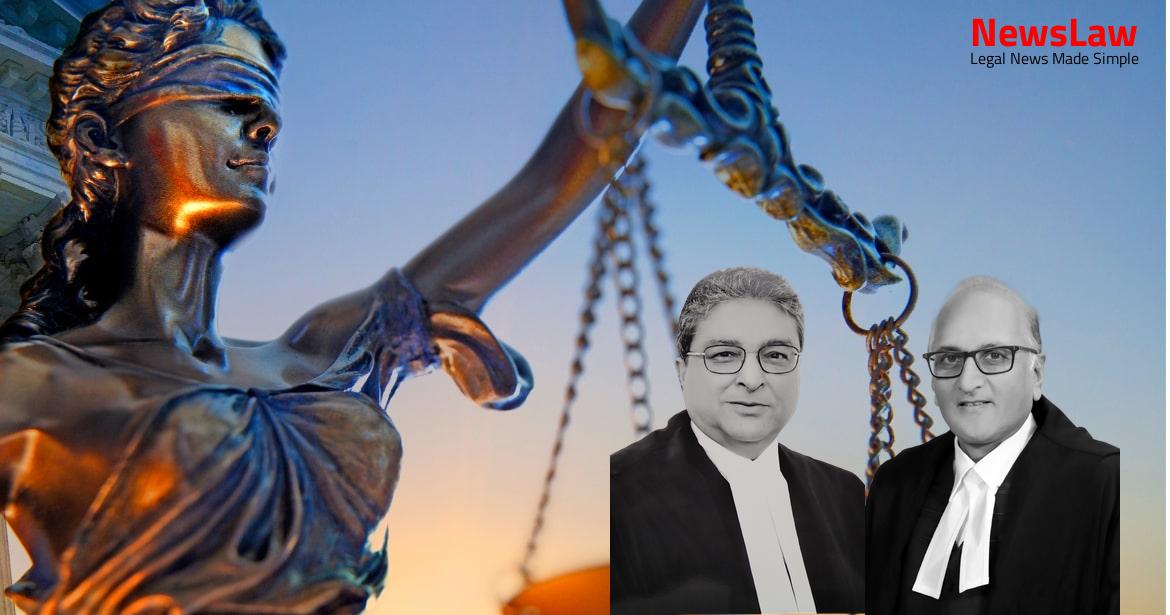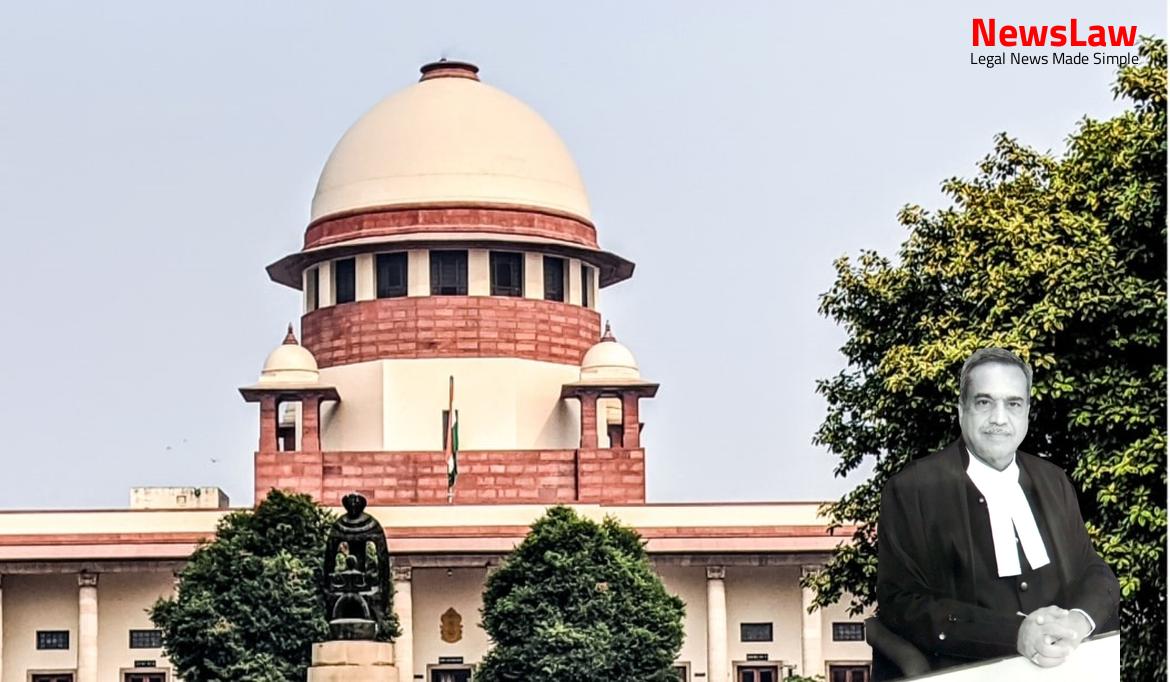Delve into the complex legal landscape of State and Central legislation governing vehicle permits and taxes. The court’s thorough analysis provides insights into the intersection of laws, exploring issues such as permit violations, tax obligations, and welfare fund contributions. Understanding the nuances of legislative competence and the interplay between State and Central laws is crucial in comprehending the legal framework surrounding vehicle regulations.
Arguments
- The welfare legislation is intertwined with the compensatory legislation by the impugned Amendment Act of 2005.
- The State Legislature is not competent to frame laws ensuring collection of welfare fund dues through taxation statutes.
- The appellants challenge the constitutional validity of certain provisions in the State enactments.
- The State enactments are argued to be repugnant to the Central law and lack legislative competence.
- The State amendments effectively link the workers’ welfare fund contribution with the obligation to pay tax for operating motor vehicles.
- The State of Kerala should have obtained Presidential assent under Article 304(b) for the amended provisions via the Amendment Act of 2005.
- Section 8A of the 1985 Act potentially overrides the Central legislation i.e., the 1988 Act.
- The State legislation may be void and unconstitutional due to lack of Presidential assent.
- The amendments in the State legislation encroach upon the provisions under the 1988 Act related to the issuance and validity of permits.
- The High Court upheld the constitutional validity of Section 8A of the 1985 Act, opening the door for appellants to challenge its validity in the present appeals.
- Mr. Abraham Mathews, representing the State of Kerala, supports the Division Bench’s reasons in the judgment.
- He argues that the provision in question is not unconstitutional.
- The levy of tax on motor vehicles in Kerala is governed by the 1976 Act, passed under Entry 57 of List II of the Constitution.
- The appellants admitted their liability to pay the tax under the 1976 Act and their dues under the 1985 Act.
- The legislature can combine levies for various purposes like education cess.
- The Division Bench directed that producing proof of appealing a legitimate dispute over the levy amount is sufficient compliance with the law.
Also Read: Analysis of Compensation Method in Land Acquisition Case
Analysis
- Sections 8 and 15 of the 1985 Act and Section 192A, 207, and 177 of the 1988 Act provide for determination of amounts due under the Act, punishment for using a vehicle without a permit, and seizure of vehicles without a permit.
- Section 82 and 83 of the 1988 Act allow for the transfer of permits from one person to another and replacement of a permitted vehicle with a similar one.
- Section 192A of the 1988 Act imposes imprisonment for using a vehicle without a permit.
- Section 207 of the 1988 Act allows for the seizure and detention of vehicles plying without a permit.
- The State Legislature cannot impinge upon the occupied field as the 1988 Act already has mechanisms to deal with permit violations.
- Section 15 of the 1976 Act states that non-payment of tax on a transport vehicle within the prescribed period renders the transport permit ineffective until the tax is paid.
- Sections 9, 10, and 11 outline the liability to pay vehicle tax by persons succeeding ownership and the power of police or Motor Vehicles Department officers to stop vehicles for tax verification.
- The 1976 Act and the 1985 Act, along with the amendments, fall within the powers of the State Legislature and do not conflict with the 1988 Act enacted by the Parliament.
- The provisions of the State Acts do not invalidate the permits issued under the 1988 Act but reinforce the mandate of the Central legislation.
- The 1988 Act does not cover the manner of levy and collection of vehicle tax, which is addressed by the State legislations.
- The amendments introduced by the State legislation in 2005, requiring welfare fund contribution before vehicle tax payment, are constitutionally valid and serve a beneficial purpose.
- The State Acts and their amendments do not create repugnancy with the Central Act but complement each other in regulating vehicle tax and welfare fund contributions.
- The High Court rulings have upheld the validity of the State Acts in light of their legislative competence and beneficial objectives.
- The consequences outlined in Section 15 of the 1976 Act for non-payment of tax are in line with the provisions of the Act and do not impede on the issuance of permits.
- The enforcement of welfare contributions as a precondition for tax payment under the State Acts is deemed valid and essential for protecting the rights of motor transport workers.
- The provisions in the State Acts work in conjunction with the Central Act to ensure compliance with tax obligations and welfare fund contributions, without conflicting with each other.
- Three principles were noted in the decision, including direct conflict between provisions, Parliament’s intention to provide an exhaustive code, and laws made by Parliament and State Legislature occupying the same field.
- The case of Thirumuruga Kirupananda Variyar Thavathiru Sundara Swamigal Medical Educational & Charitable Trust was referred to in which the court made observations.
- The decision cited various cases to support its view, including A.L.S.P.P.L. Subrahmanyan Chettiar vs. Muttuswami Goundan, Prafulla Kumar Mukherjee & Ors. vs Bank of Commerce Ltd., Khulna, The State of Bombay & Anr. vs F.N. Balsara, and M. Karunanidhi vs Union of India.
- Challenge has become academic as the stand of writ petitioners regarding the validity of the amended provisions being repugnant to the law made by the Parliament has been negatived.
- Counsel for writ petitioners accepted following state legislations after the 2005 amendment for all these years.
- Intent of the provisions is to restate the mandate in the 1988 Act that vehicles cannot be used on road without a valid permit and payment of vehicle tax up to date.
- Provisions of the State Acts are intended to ensure the vehicle owner/permit-holder does not remain in arrears of welfare fund contribution or vehicle tax, in line with the 1988 Act.
- State enactments do not create new liability or obligation in relation to the permit under the 1988 Act but provide dispensation for timely collection of welfare fund contribution and vehicle tax by the same owner/permit-holder.
Decision
- The appeals are dismissed with costs.
Case Title: ALL KERALA DISTRIBUTORS ASSOCIATION, REPRESENTED BY ITS SECRETARY Vs. THE STATE OF KERALA (2022 INSC 752)
Case Number: C.A. No.-004502-004502 / 2009



